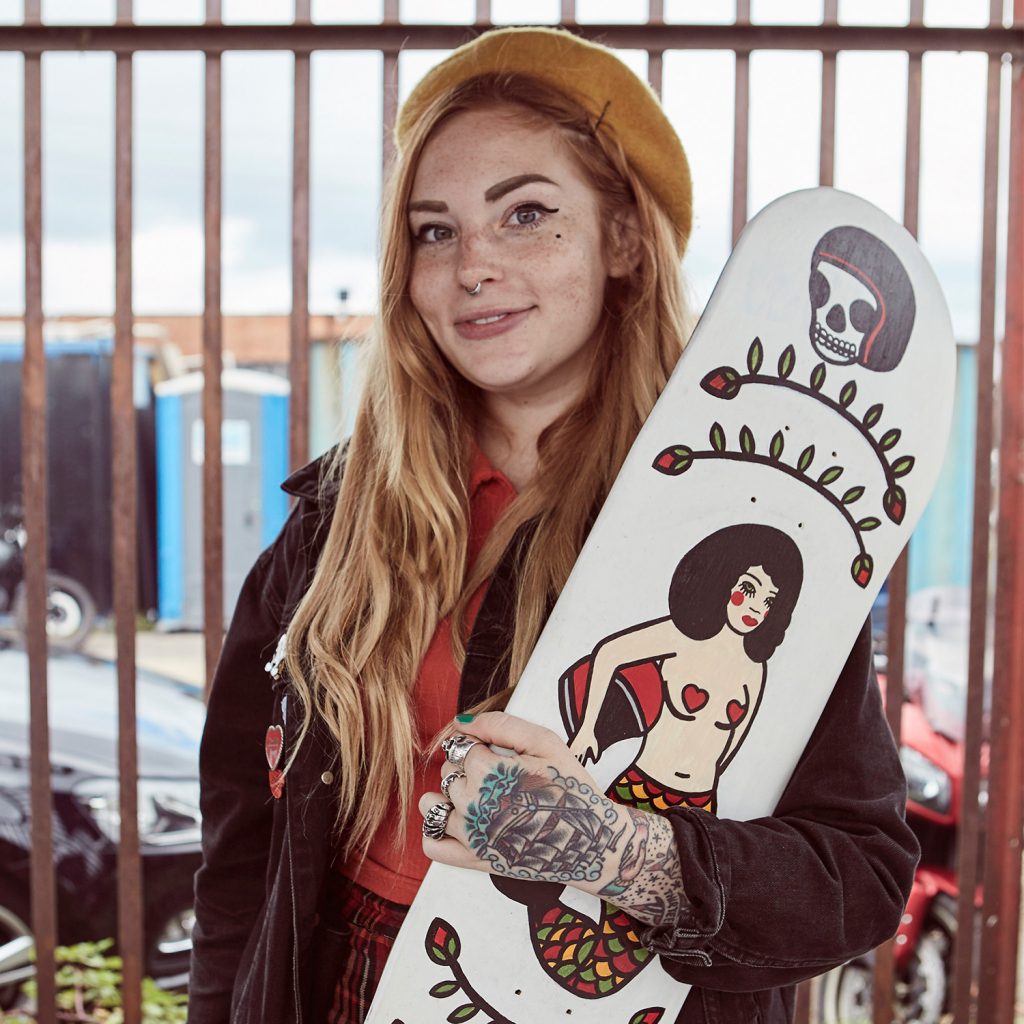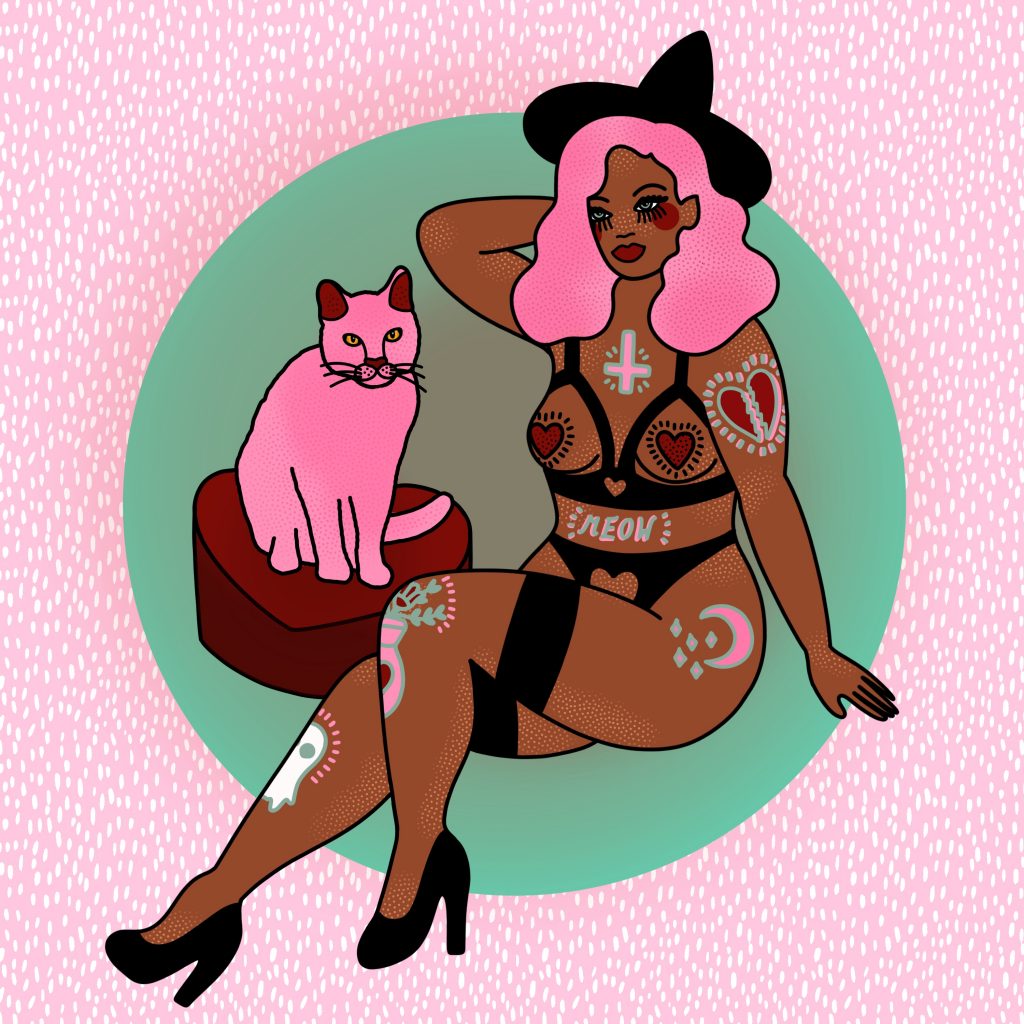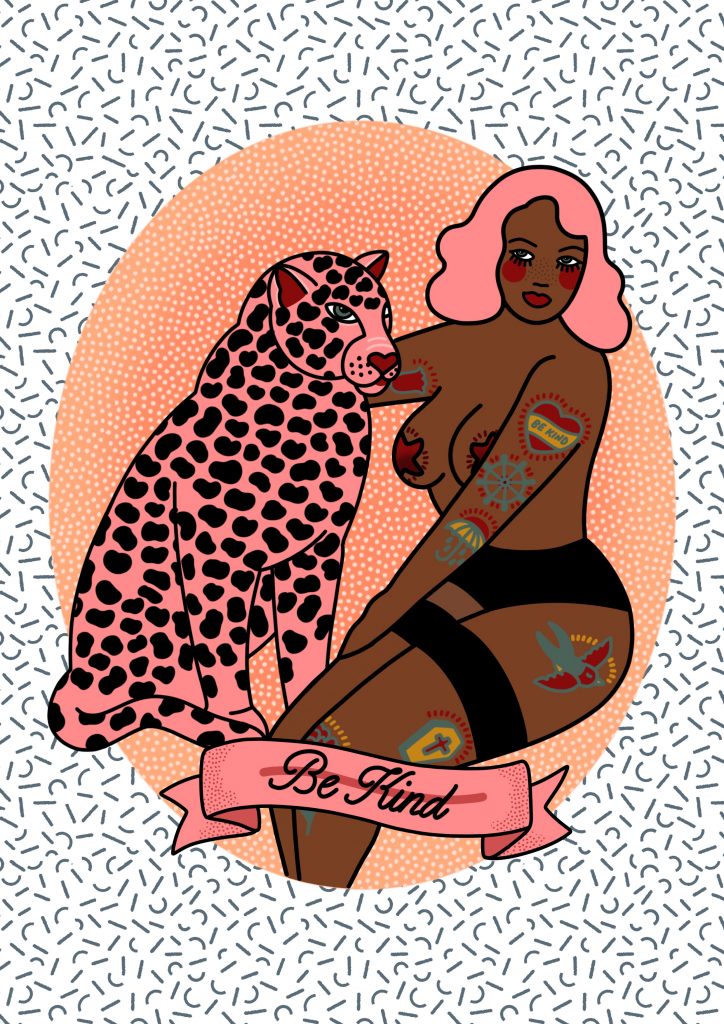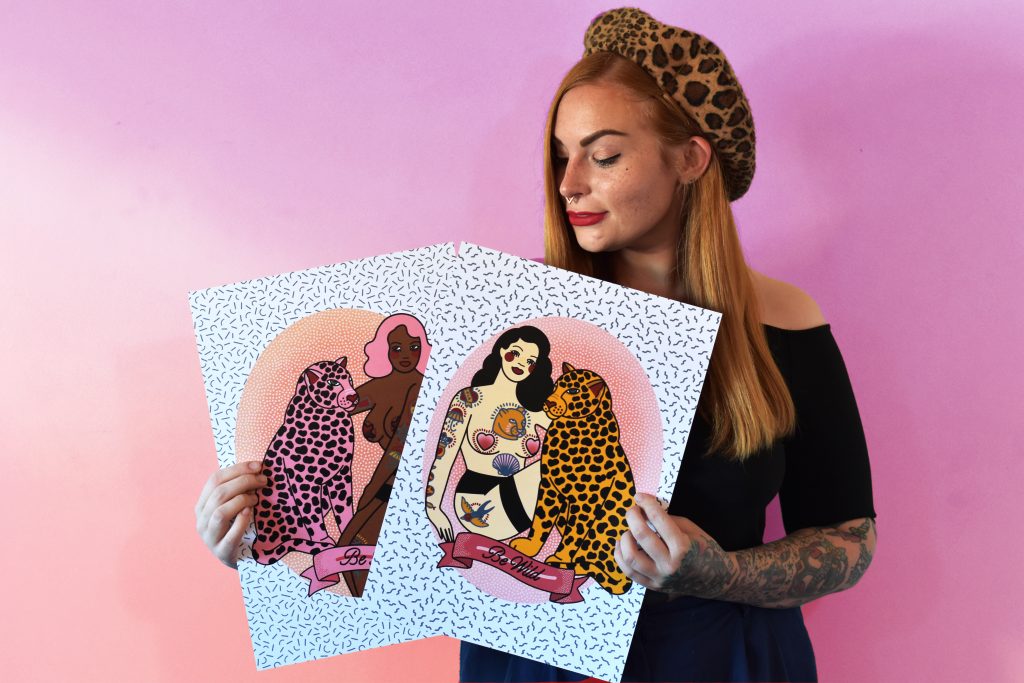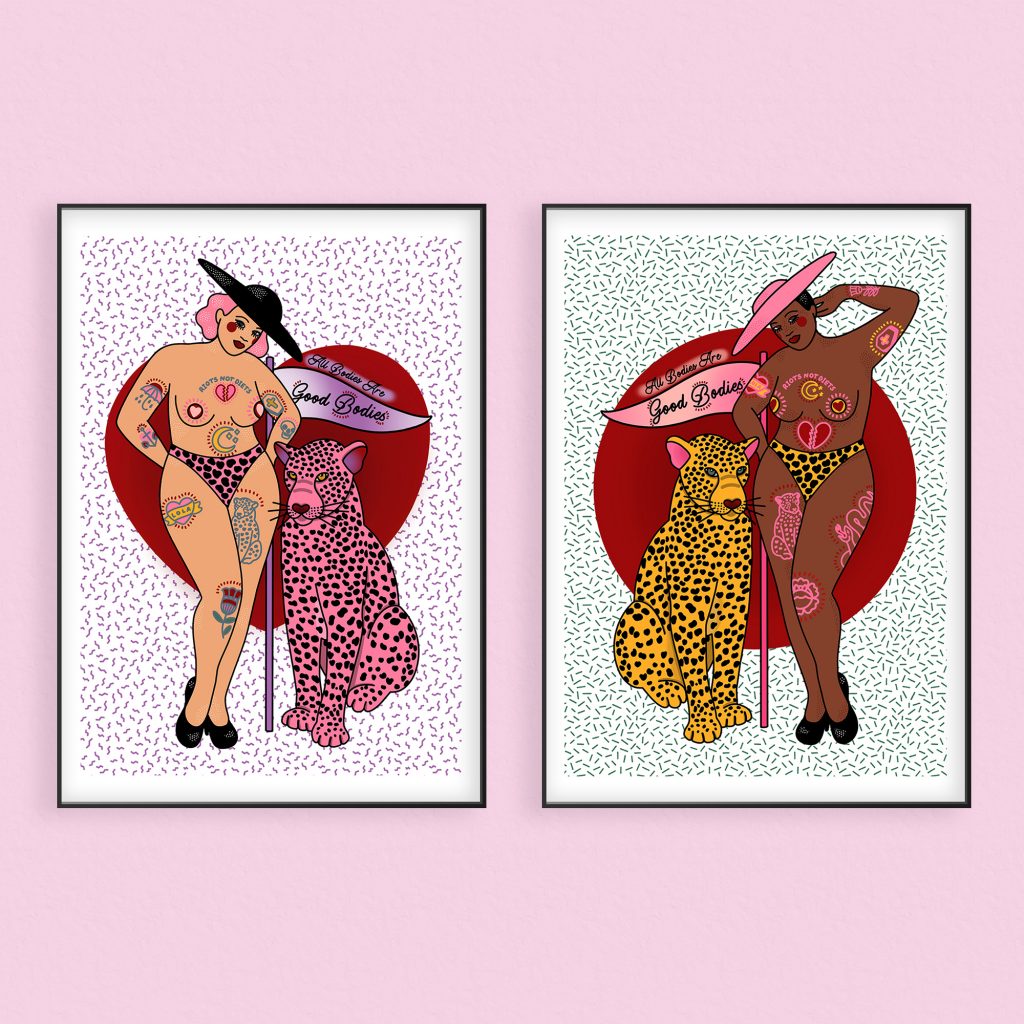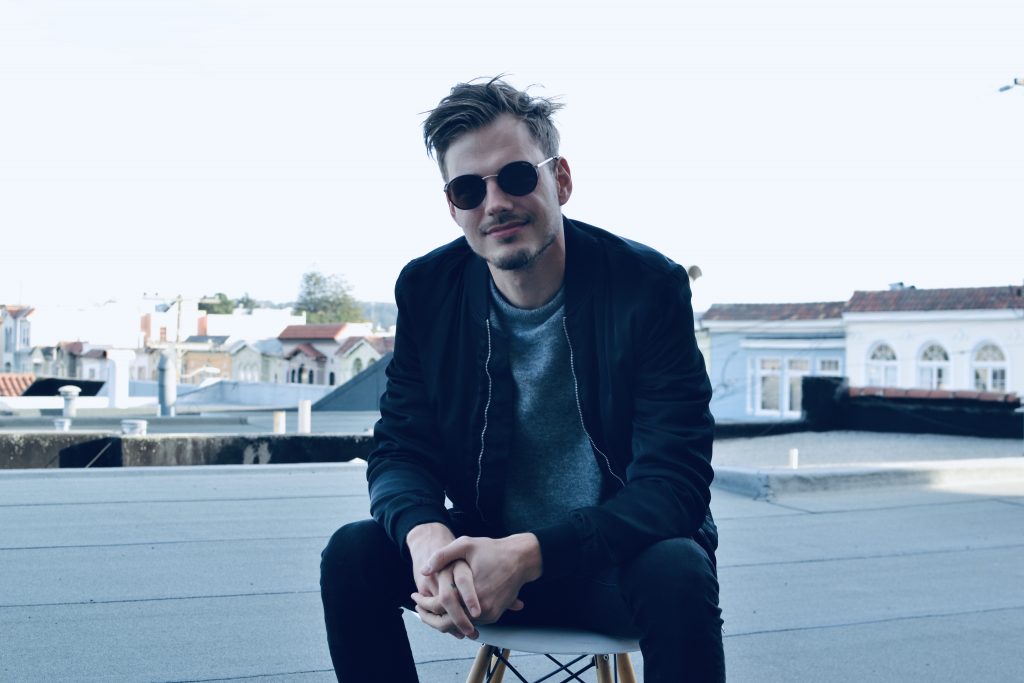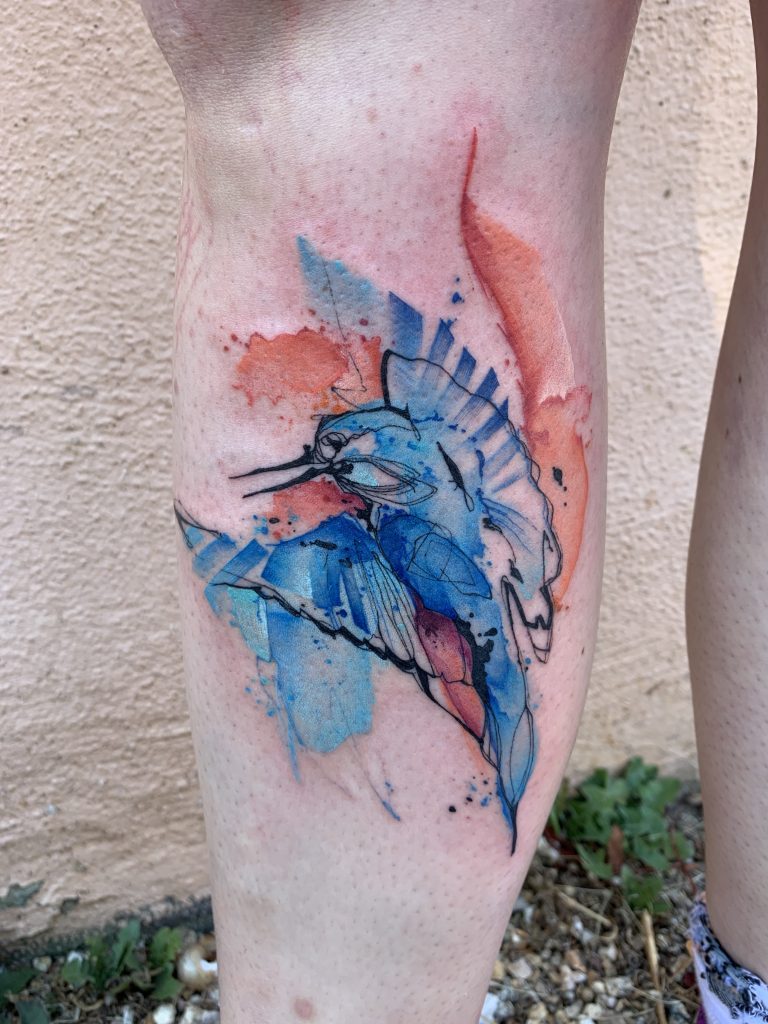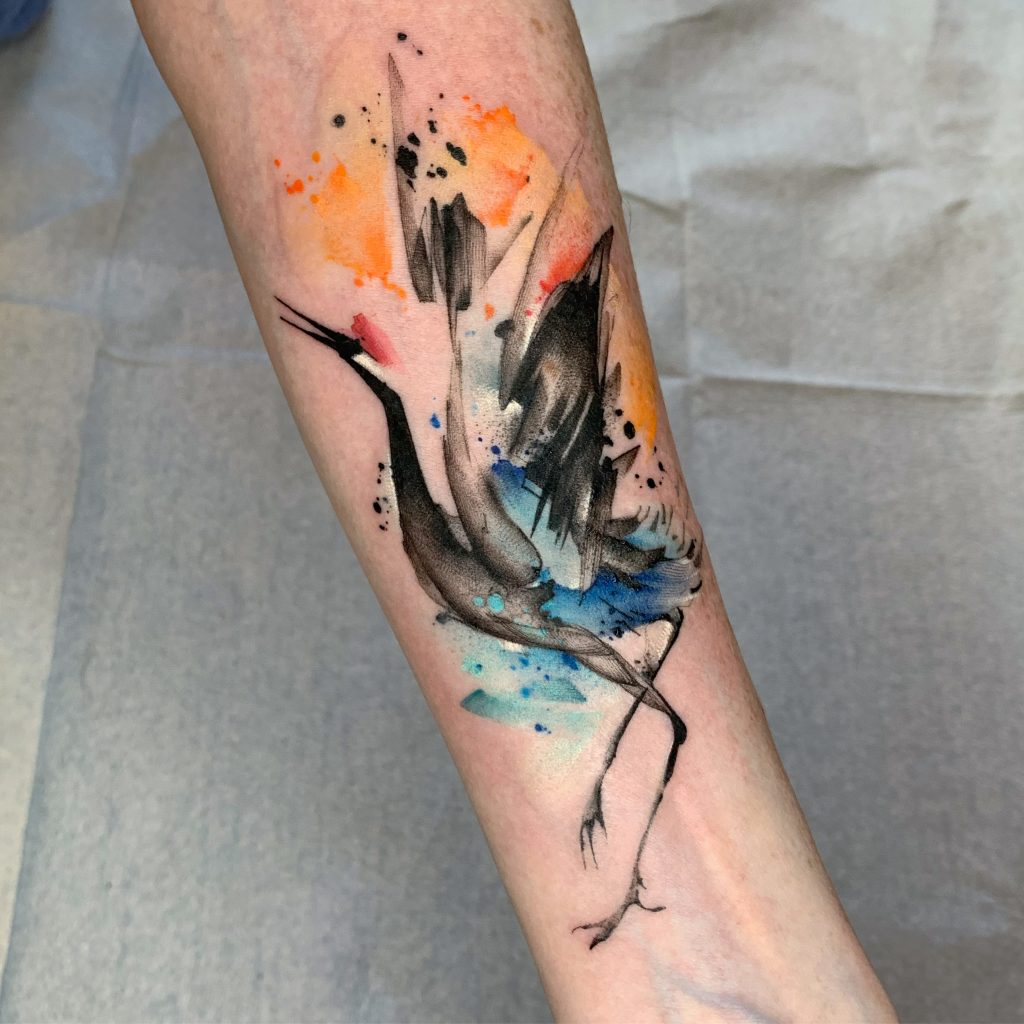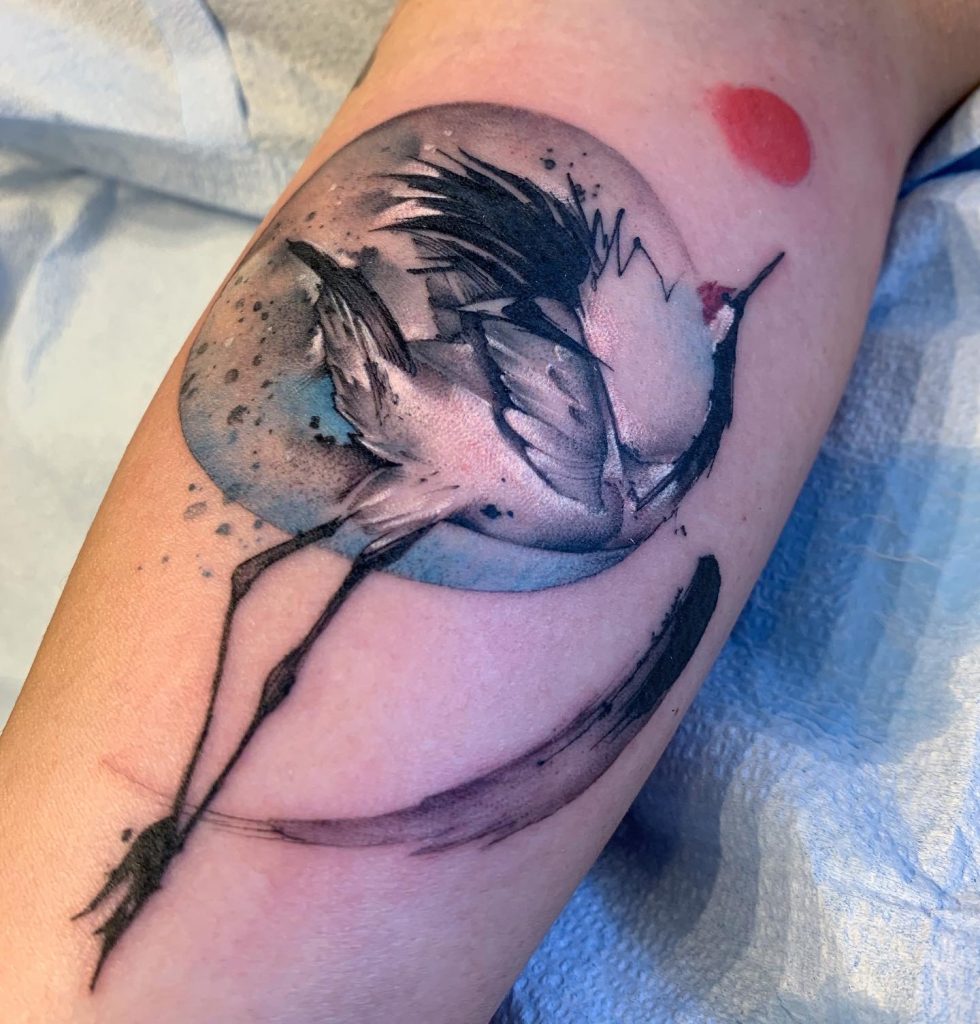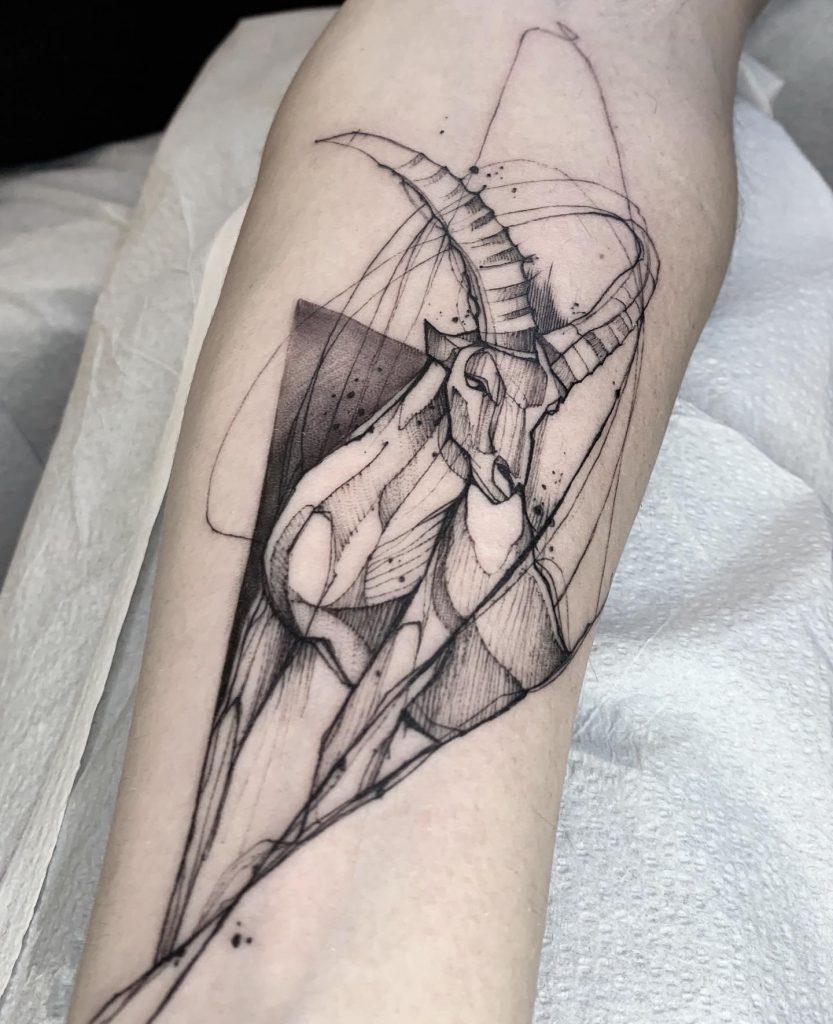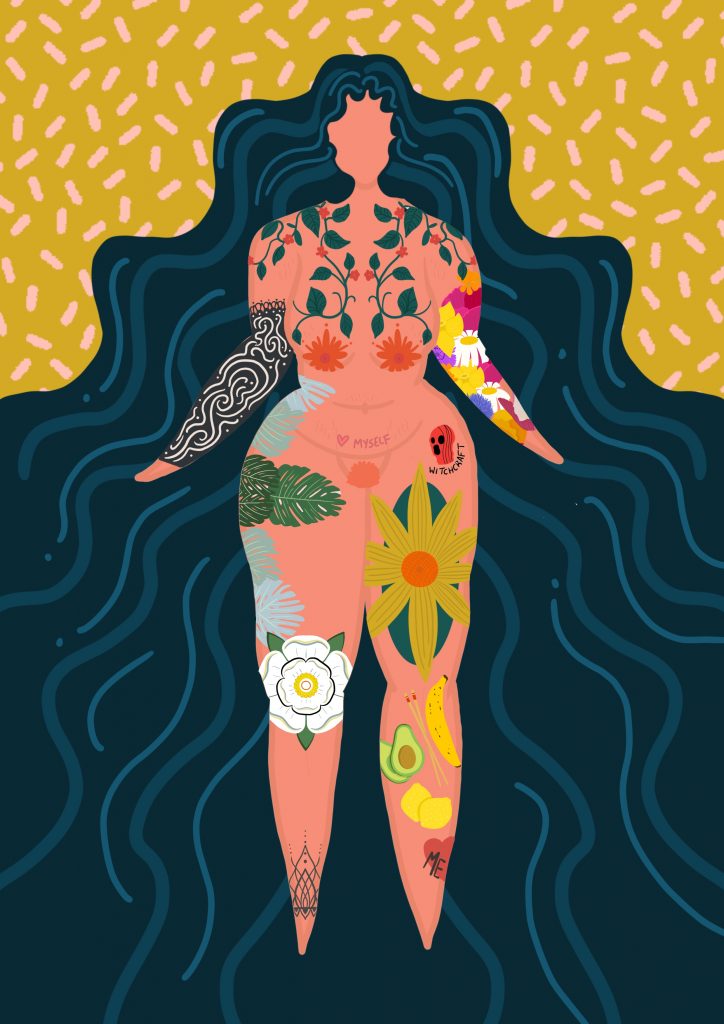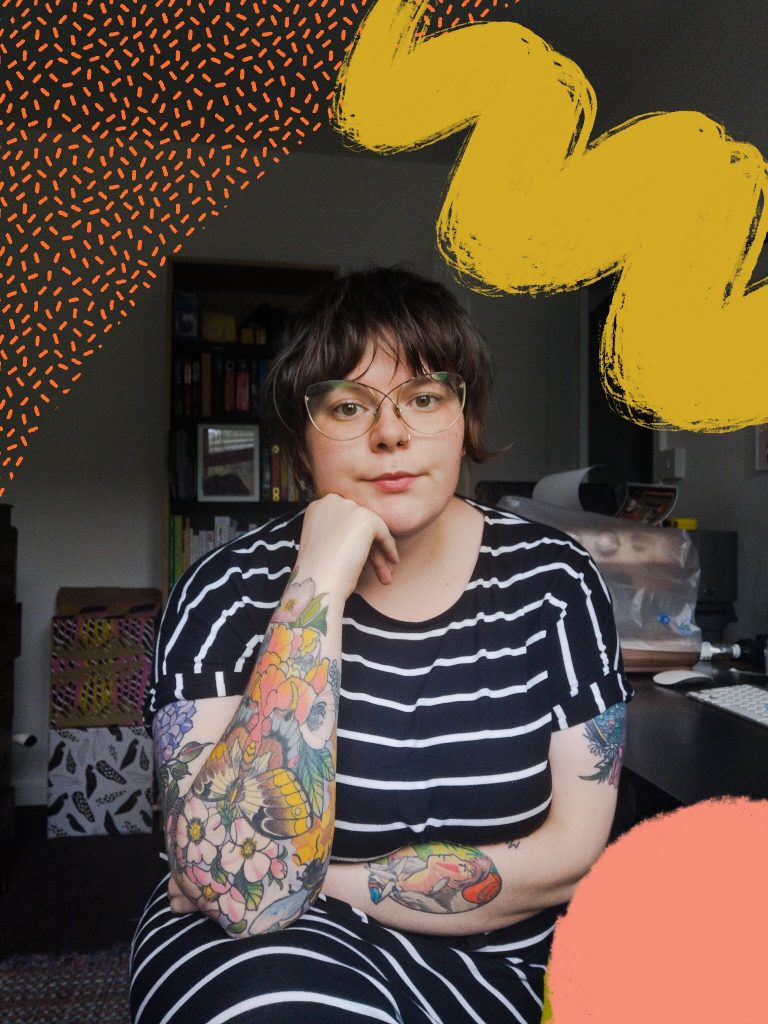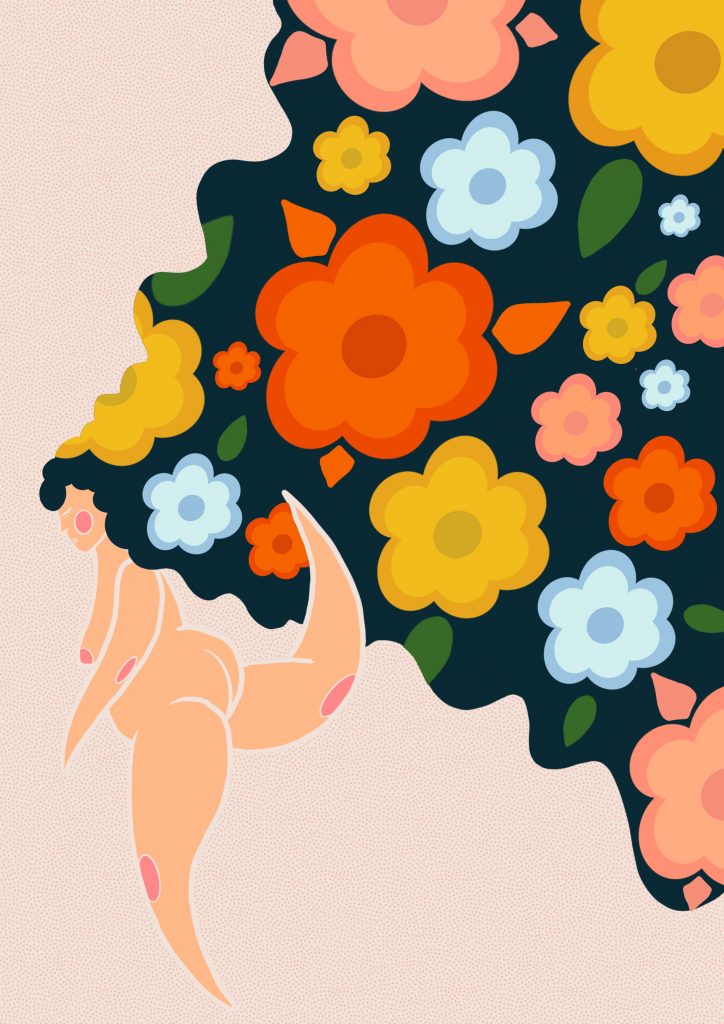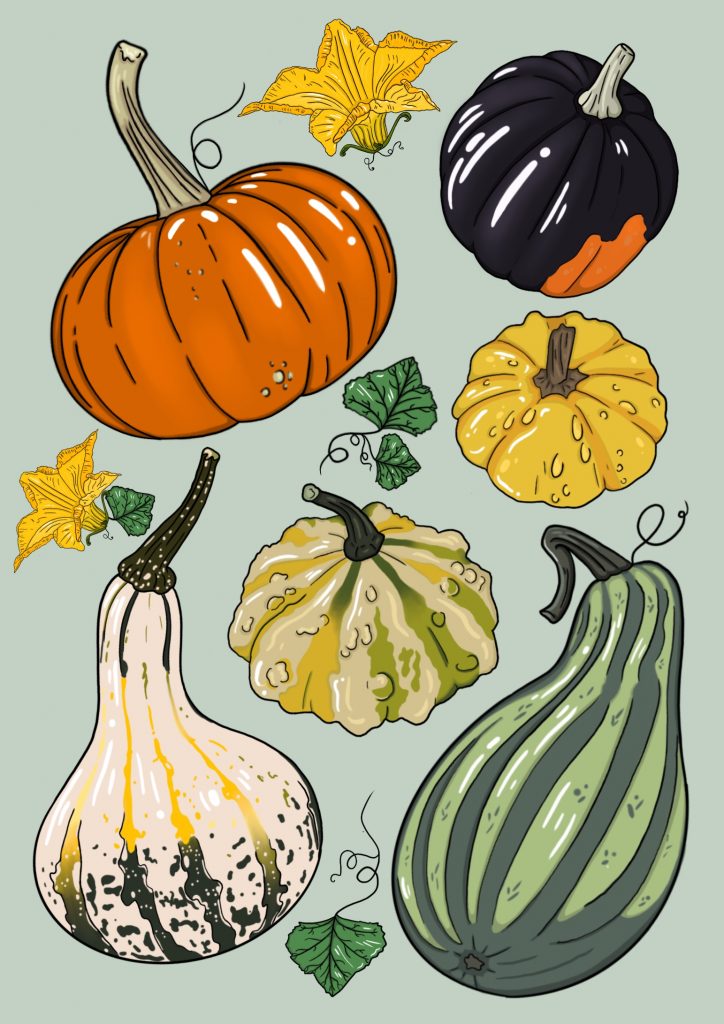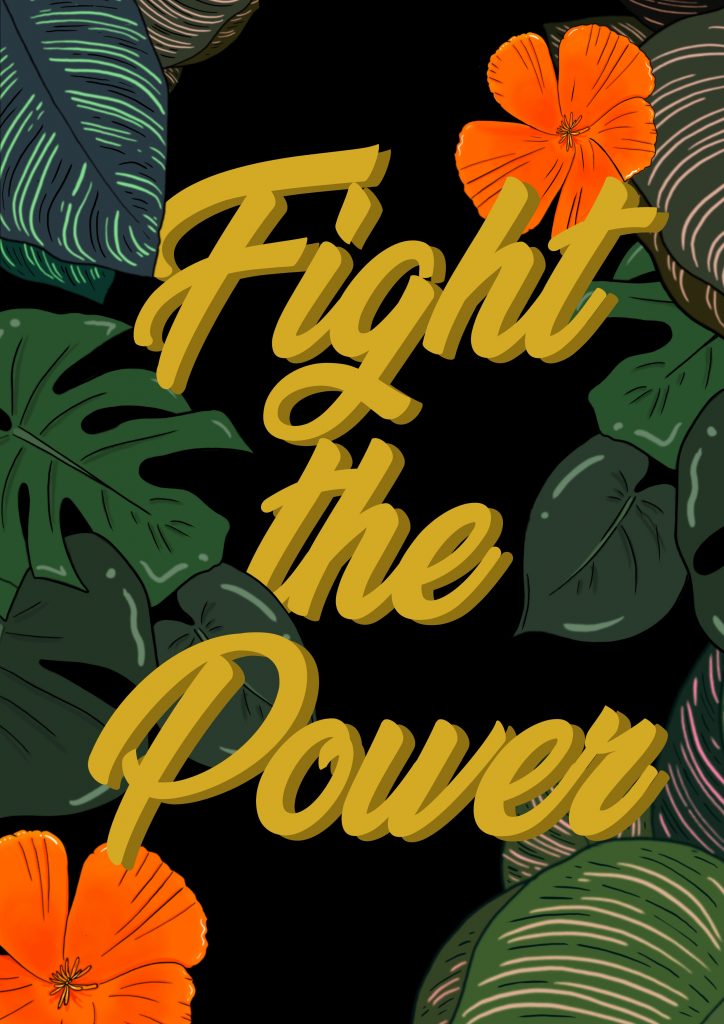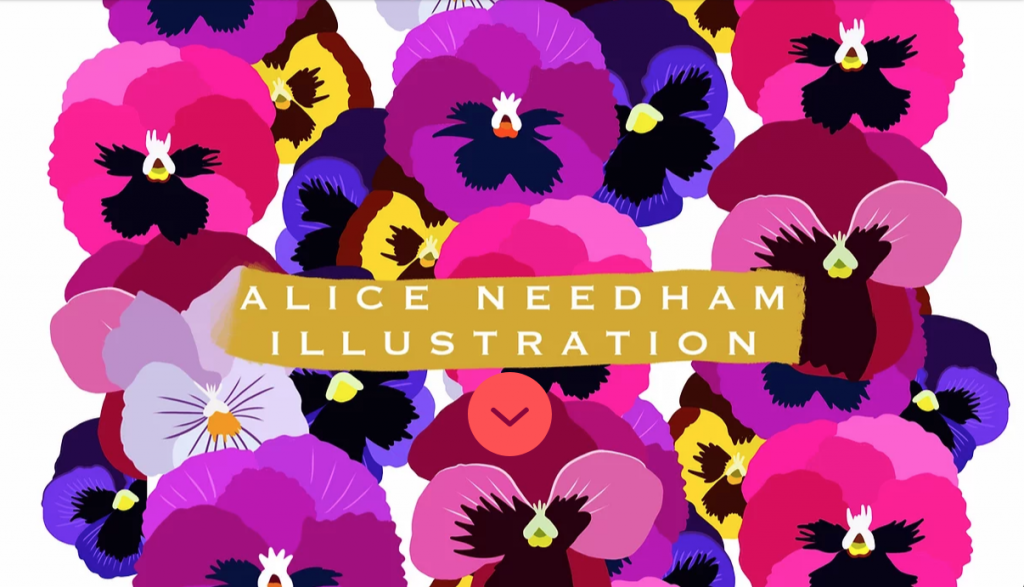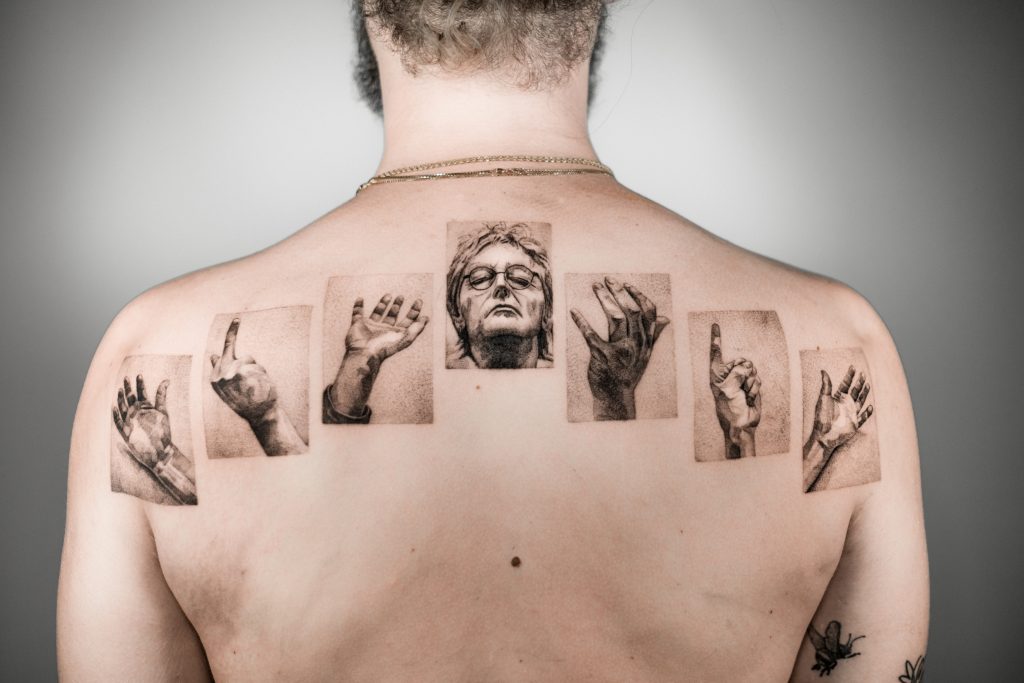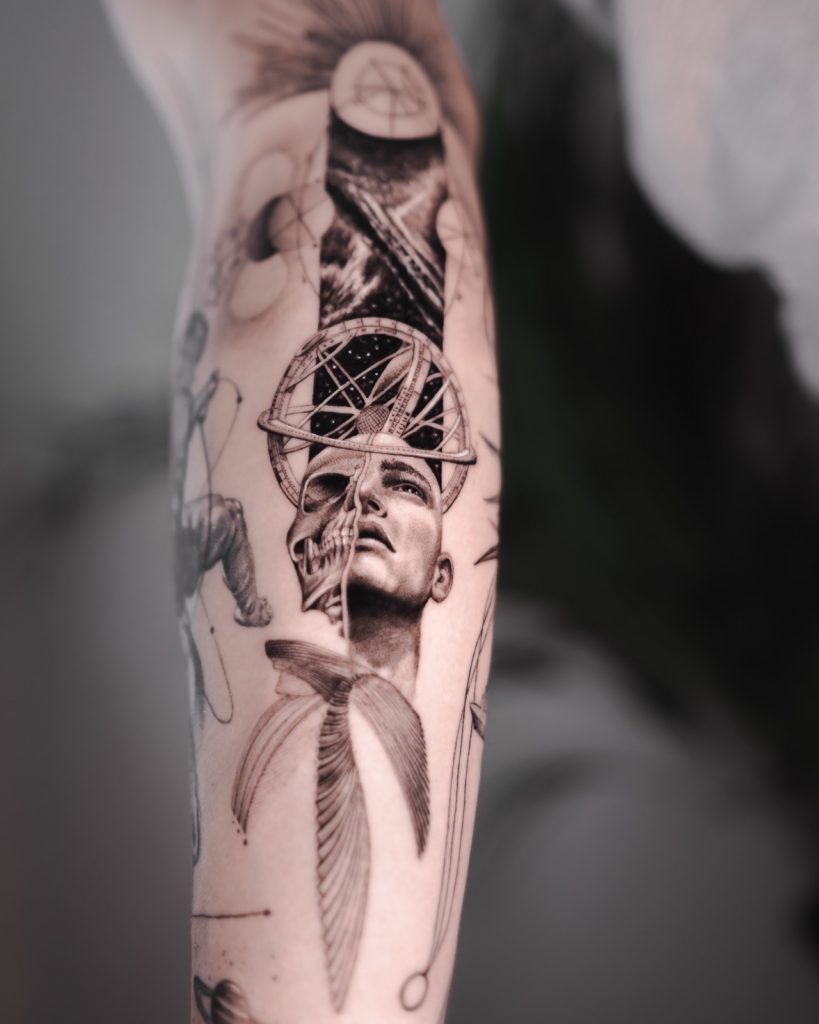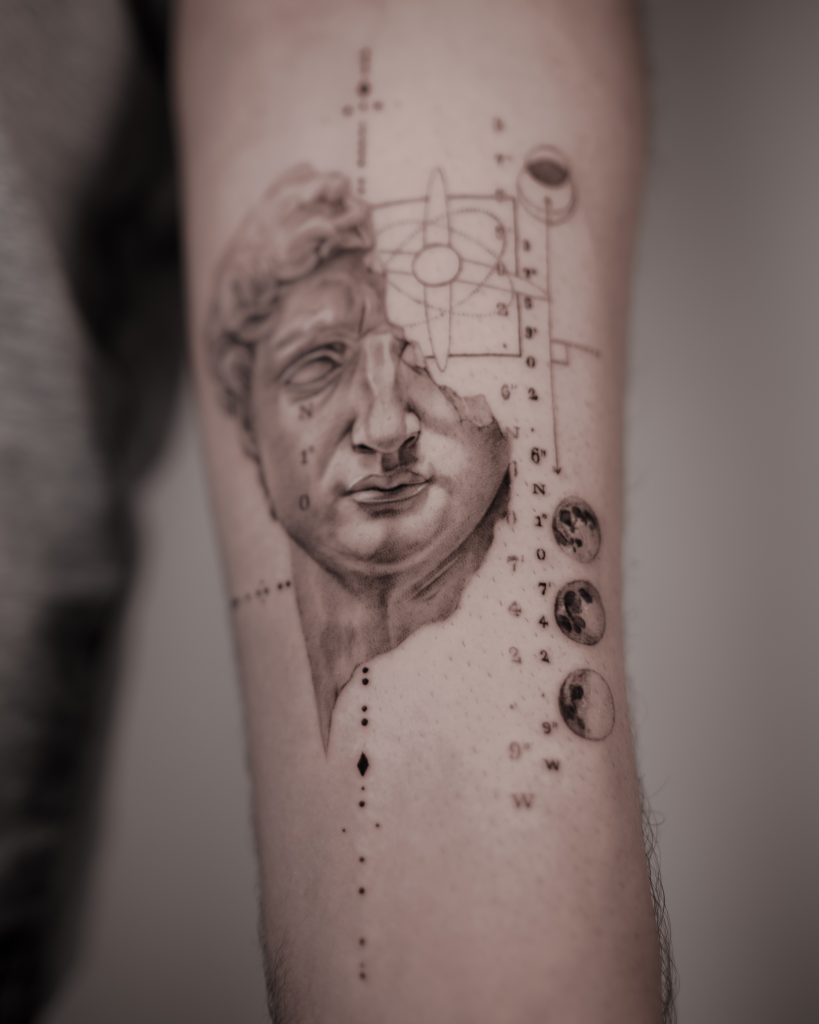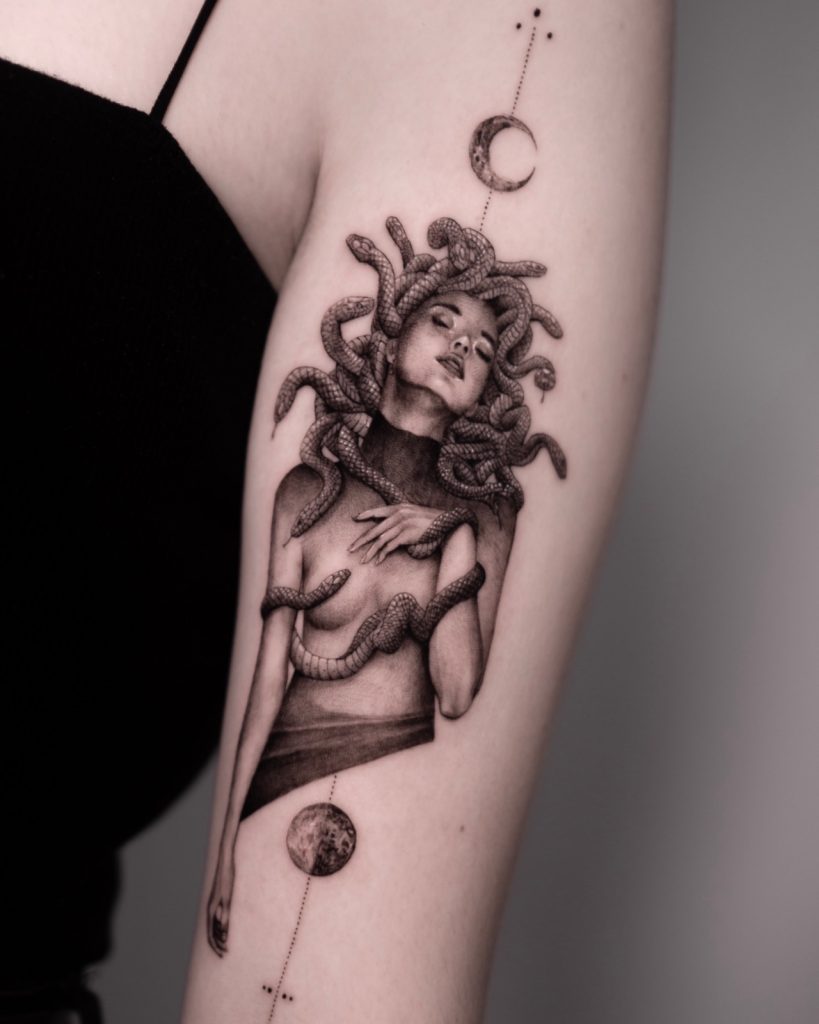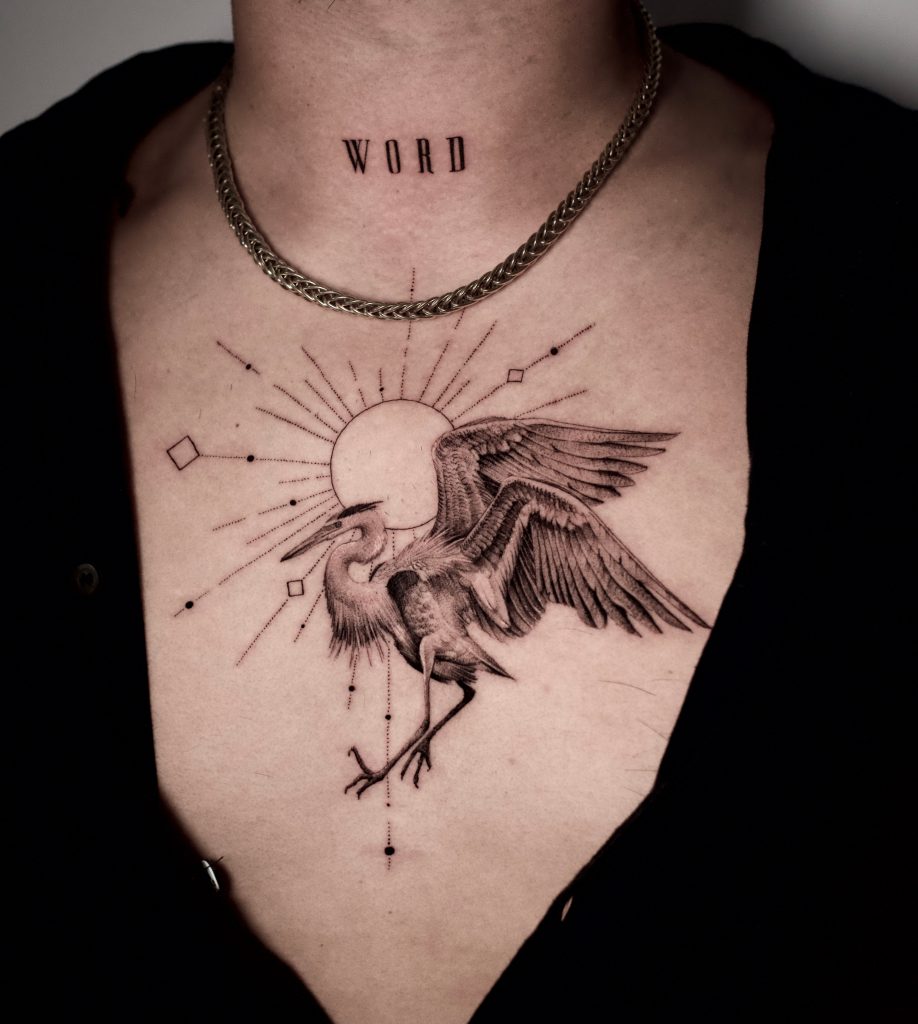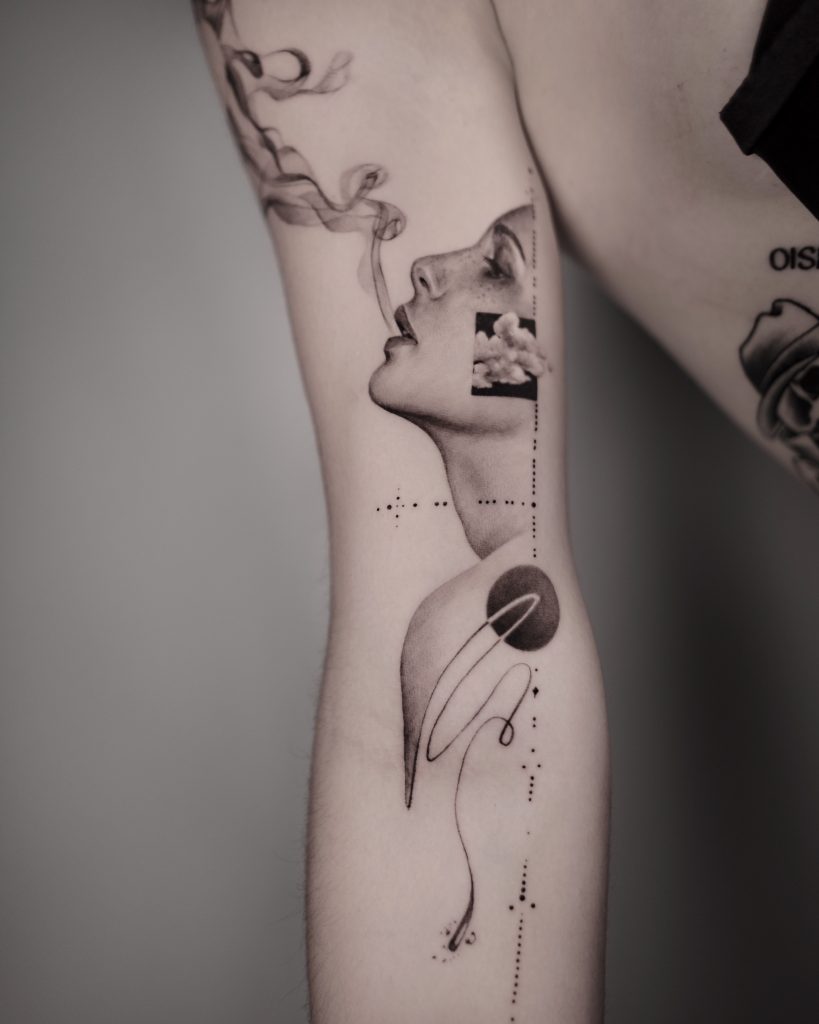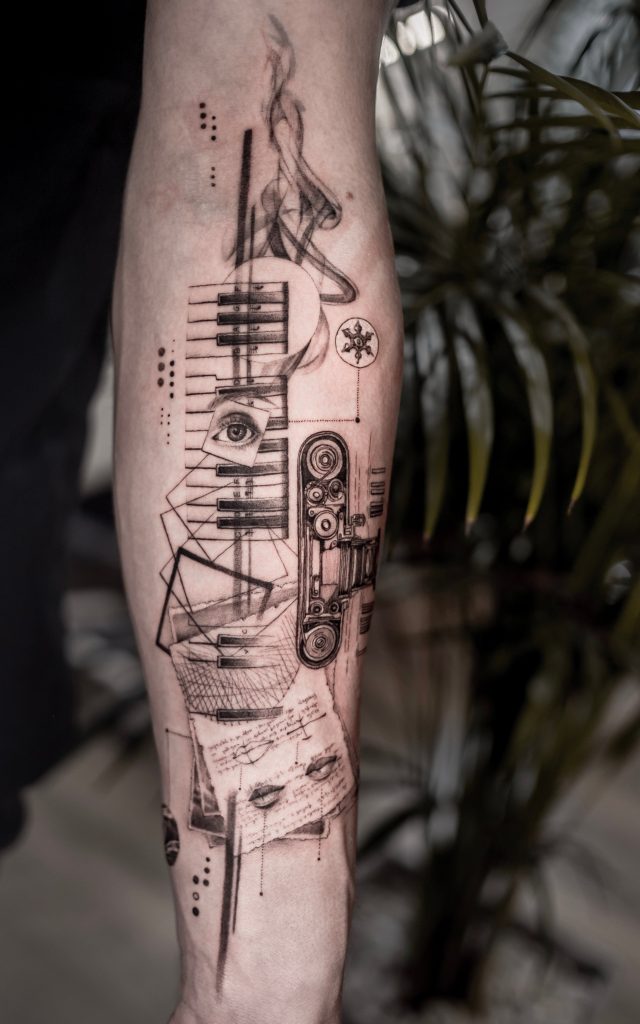Kelly creates beautifully nature-inspired handpoke tattoos at Easy Tiger Tattoo in Leeds. We chatted to the artist about handpoke tattoos, planting trees and love of tattooing ears…
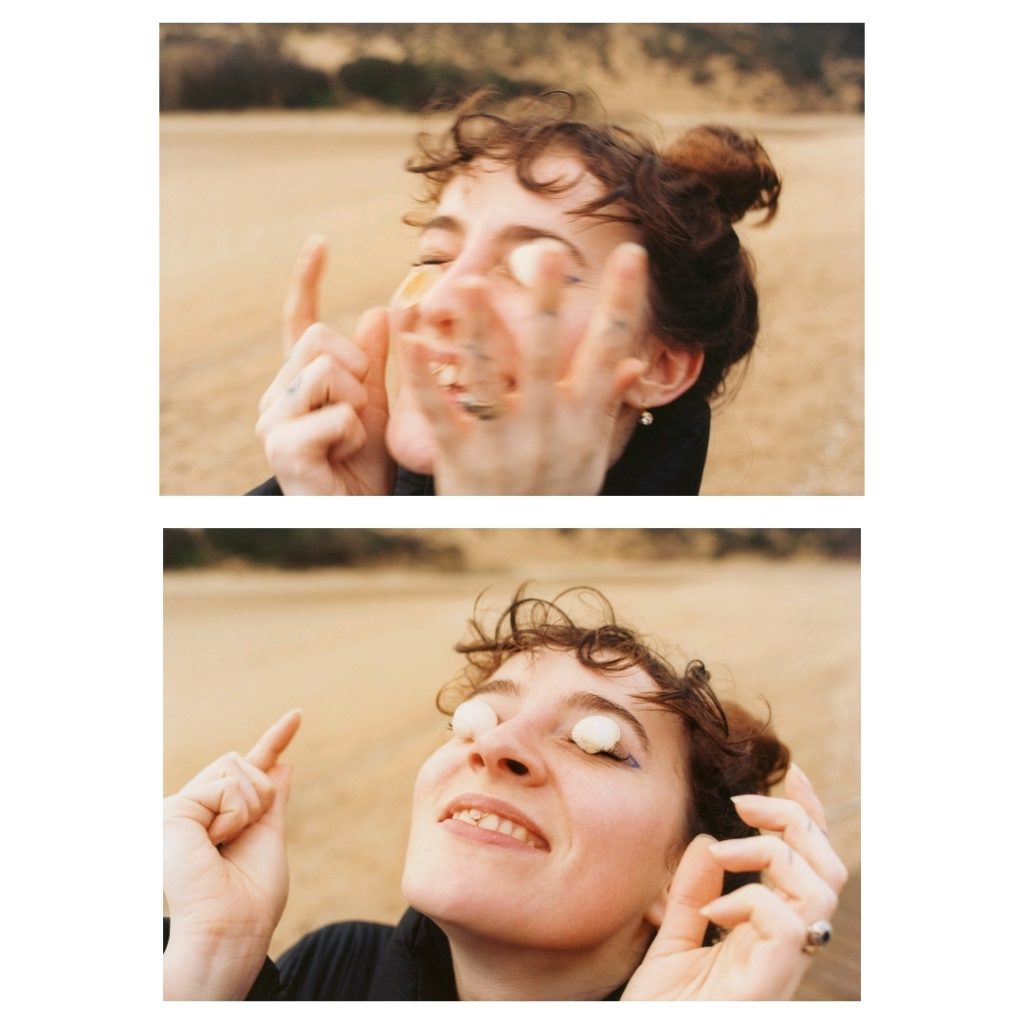
My experience as a handpoke artist was a bit tough at first but I could not be happier with where I am now. Handpoke tattooing had a bit of a bad reputation (and sometimes still does) with people buying easily accessible handpoke kits and doing it at home.
When looking for a studio to work from, I found that even though I learnt in a professional environment, handpoking still had a stigma attached to it. Now though I have the pleasure of working alongside awesome and inspiring artists (machine and handpoke), and it’s more widely known and accepted professionally.
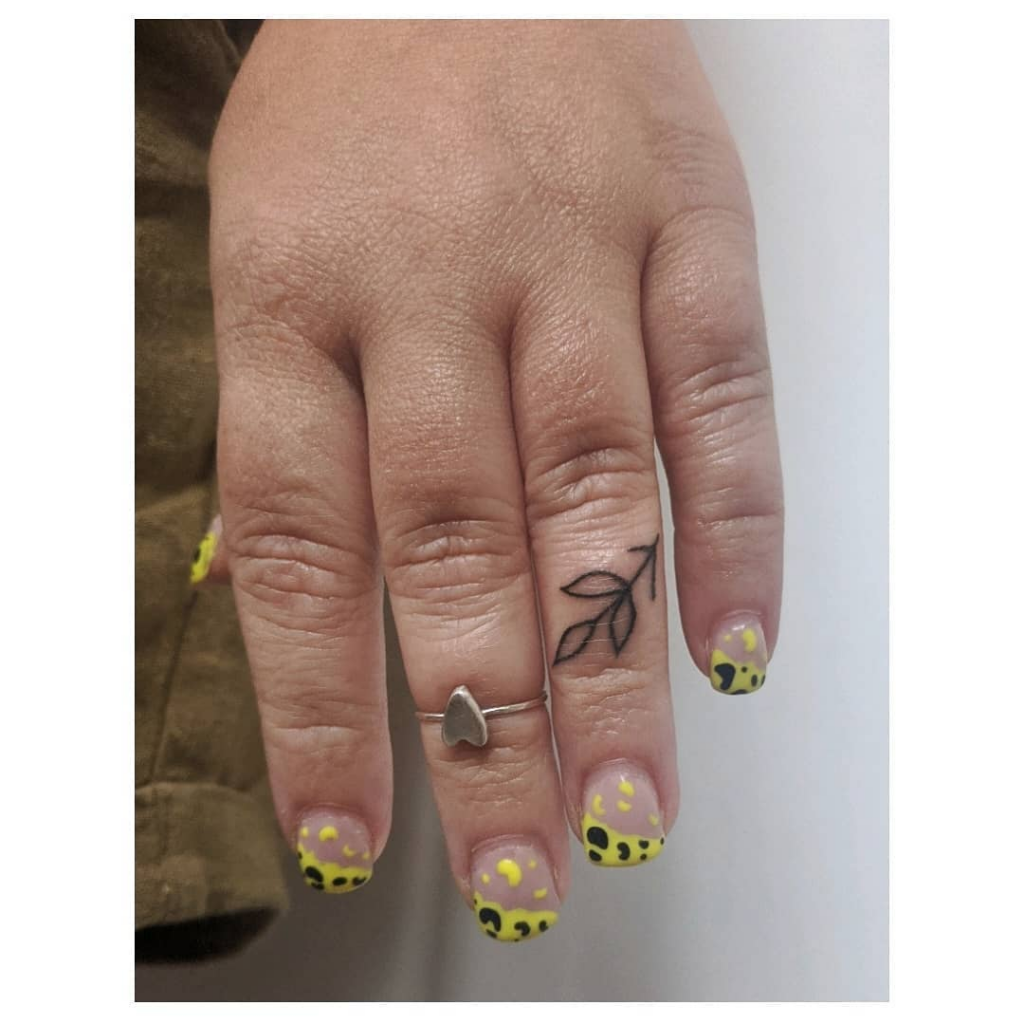
I was drawn to handpoke tattooing mainly because it’s a lot gentler than the machine and I find it very therapeutic. Most of my clients agree with me on this.
I have been handpoked by quite a few different artists and found they each have different techniques and ways of setting up. I tend to research the artist first, I’m quite fussy when it comes to getting tattooed. It has to be the right style for me, and I’d want the artist to be into my idea.
When it comes to my own tattooing process I always book in plenty of time for each client so we can go over the design, size and placement together. Whether it be a flash design, a custom piece or something I’ve drawn onto the skin, we have to make sure it’s perfect – I don’t like to rush! My set-up and supplies used are fully vegan and where possible, biodegradable. I also plant six trees for every appointment made to help fight climate change.
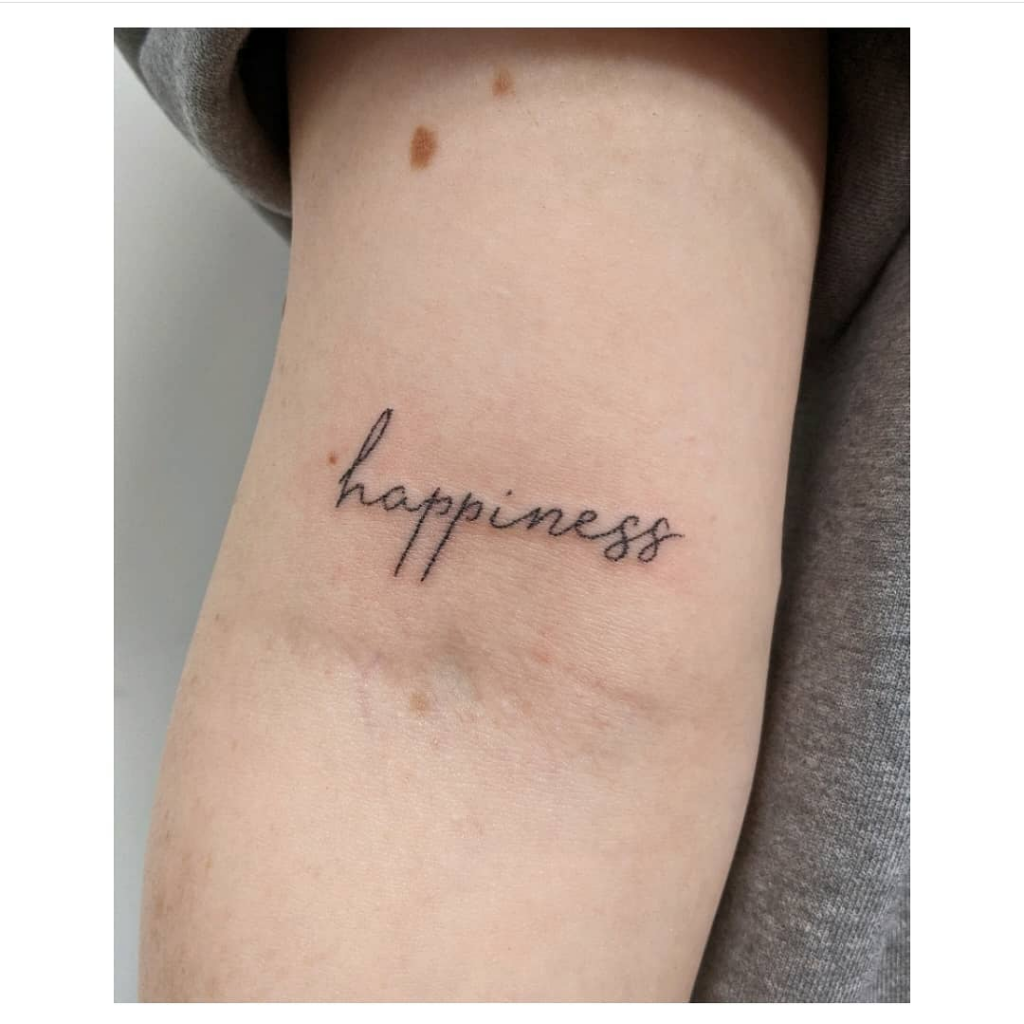
I usually book at least one hour for a tattoo, even if it’s three finger dots! I like to have the time to get settled and for my client to feel settled with me, and with the design. Most of my tattoos like the small leaves, words, animals, ears, and single flowers take between one to two hours.
Most of my inspiration comes from nature; leaves, flowers, animals. I have a silly amount of photographs of plants on my phone that I’ll draw from. I also have a nice collection of reference books that include botanics, patterns and floral art. Sometimes inspiration comes from a leaf on the floor, art exhibitions, or the pattern on an old lady’s skirt!
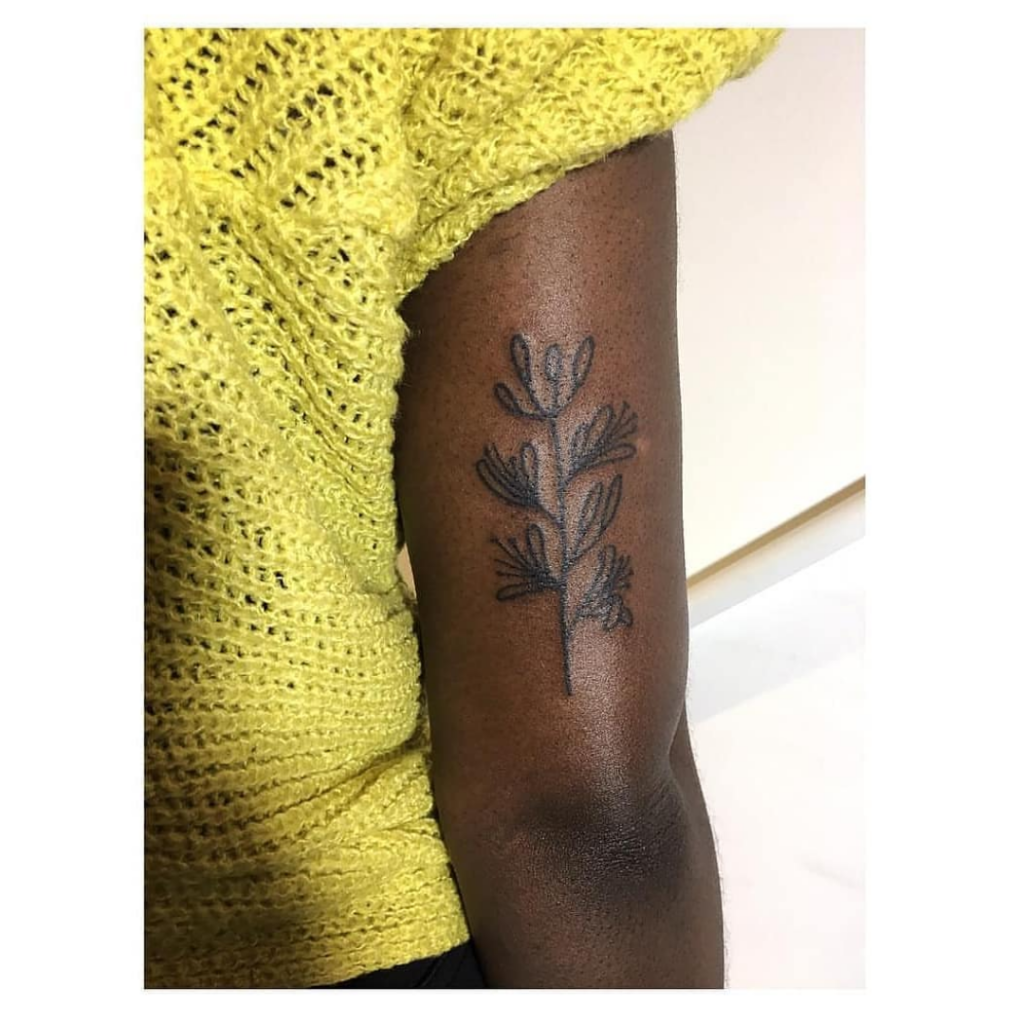
I love tattooing anything that I would design myself – so any flowers or leaves, yes please. Animals I love too. Handwriting I could happily do everyday. Basically as long as I can have a bit of freedom with the design and it’s my usual style, then I’m a very happy bunny.
I’d love to tattoo more ears and fingers. Every ear is a different shape and size so it’s fun to see what design works best. I usually freehand the design on these places but elsewhere on the body, if we’re doing a flower or leaves, it’s always super enjoyable to draw straight on the skin , especially if it’s an area that’s not flat or easy to put a stencil on to. Also – I’m always, always up for black leaves.
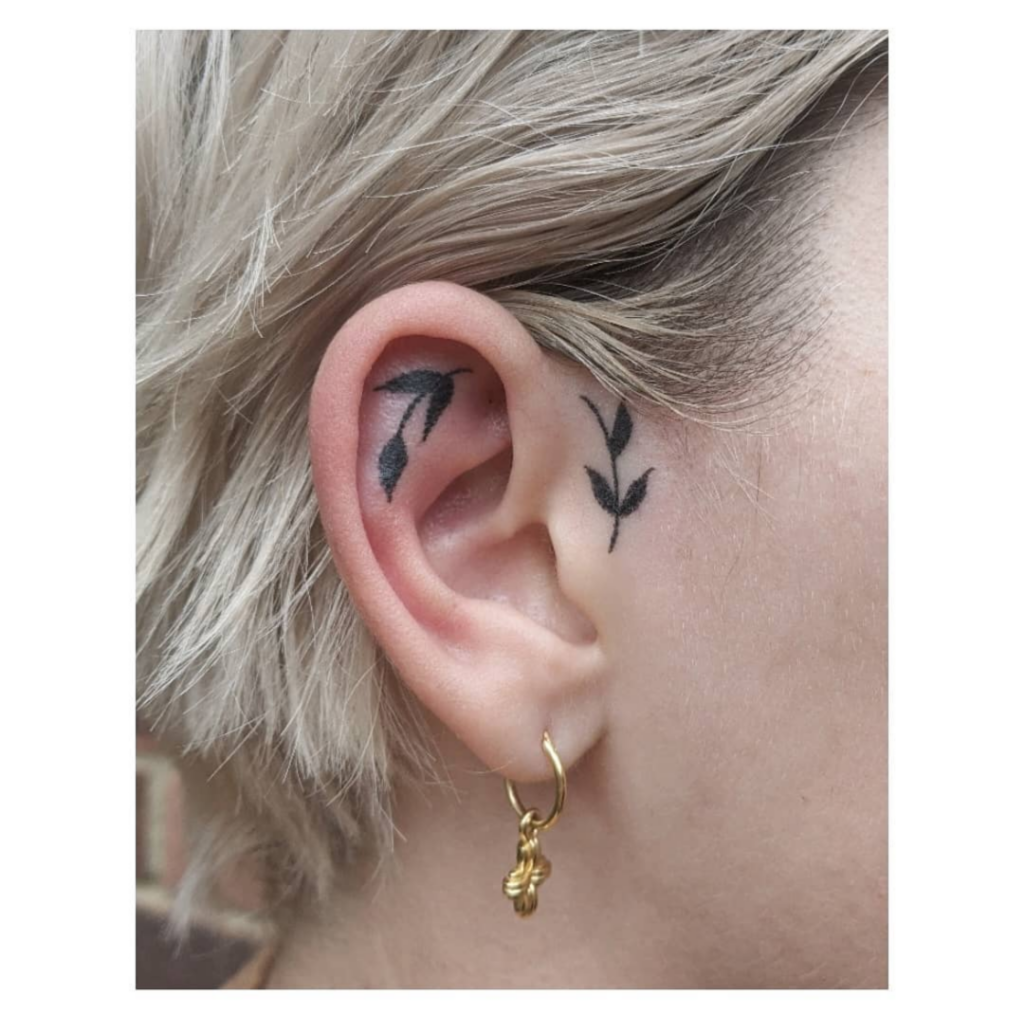
I can’t see myself going back to machine tattooing. I love everything about handpoke, it suits me perfectly. How it’s gentler and calmer. When it comes to tattooing what I do (ears, fingers, tiny animals etc.) I personally can’t imagine doing these with a machine – handpoke makes sense for me.
